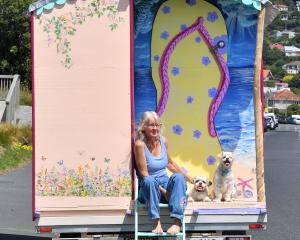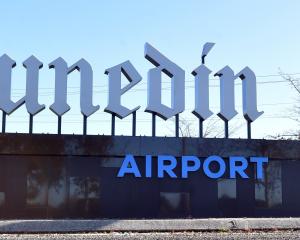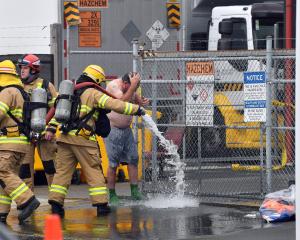
And one business that won funding backs that claim up.
In December 2014, the city won the competition that made it the first in New Zealand to get one gigabit per second broadband services.
The win came after a massive online push from residents and supporters that lifted the city to the top of the competition.
As part of the win, the telecommunications infrastructure company accelerated the roll-out of fibre broadband, and provided $700,000 of funding, $500,000 for community groups, and $200,000 for businesses.
The money was set aside for projects that used ultra-fast broadband technology.
The GigCity Dunedin initiative has, however, been criticised by some for not delivering.
Chorus Dunedin liaison manager Kim Stewart said the city had done well from what GigCity brought.
The company this week announced applications were open for Dunedin organisations and charity groups to get funding from the community fund, the final round of funding.
About $310,000 has been pledged out of the $500,000 promised, and money has gone to 14 organisations and 16 projects.
Mrs Stewart pointed to the Dunedin Gasworks Museum, which got $22,000 to develop programmes to engage with children and provide education in technology, and Urban Dream Brokerage, which creates art projects in empty city shops and received $26,000 for three of its projects, as organisations that had benefited.
"The community funding has allowed us to get into the real grassroots of the community, and give them access to things they may not have had access to before, which was really what the Gigatown competition was all about, using technology to deliver benefits to enhance people’s lives."
She said Dunedin’s Bison Group was an example of a successful outcome from GigCity funding.The three-year-old company developed scales to weigh containers, and the funding allowed it to develop software it required.
Co-founder Greg Fahey said the software, an app that received weights from the scales and allowed people to email them to third parties, had since been commercialised.
"We’re really grateful for the funding".
Mrs Stewart said fibre roll-out, brought forward to accelerate the build in Dunedin, would in December reach 52,000 homes and businesses, close to the total number of properties in the city.
"It’s covered a lot of Dunedin and Mosgiel."
She said 8000 people had gig-speed internet, and another 7000 or 8000 were connected to fibre, but had not signed up to gig-speed plans.
The company had also extended entry-level broadband plans, meaning they were cheaper, and the time period for that was supposed to finish at the end of the year, but had been extended for another year.
Mrs Stewart said there had been "a lot of questions" about the value of Dunedin winning the GigCity competition.
But there were now 11 Wi-Fi hotspots across the city, and the GigCity living hub had been set up in the library.
"The more people that use that, the better it’s going to be."
Co-starters, a business incubation programme for entrepreneurs, was another good initiative.
"I think that the momentum is building. It was always going to take time.‘‘We’re making some really good progress lately.
"There’s some great things happening."
Chorus Gigatown funding
GigStart Fund
$20,000: Co Drivr, virtual reality driving simulation; Swiftlet, cloud platform for Internet of Things; Codelingo, automated, project specific code reviews; Such Crowd, crowd-sourcing platform for event planners; Petri Dish, shared office space with Gigabit UFB; Adventure Media Works, online service for the photographic community; Blue Twist, cloud-based systems for the medical sector; Photo Toolbox Ltd, cloud-based digital asset management system; Bison Group Ltd, cloud-based data management system for the logistics sector.
$15,000: Learning with a Difference, animated learning program for children with dyslexia.
$12,000: ResponseAbility, app and support program for health and safety management.
Community Fund
$25,576: Methodist Mission, virtual reality education for high needs adult and youth learners.
$25,300: Future Convergence, interactive archive of New Zealand Maori music history.
$22,000: Malcam Charitable Trust, Mozilla Hive to connect with youth.
$20,190: Digital Dunedin Fab Lab, 3-D printing and design course for youth.
$20,000: Dunedin’s Gasworks Museum, IT education for children; St Barnabas Trust, app to manage Meals on Wheels delivery; Logan Park High School, English to Maori translation app; Otago Polytechnic, online digital literacy programme; Malcam Charitable Trust/Hive Dunedin, learning lab; Urban Dream Brokerage, artists doing data-led technology projects; Halo Project, monitoring and servicing predator trapping devices; Fortune Theatre, theatrical and technical theatre talent education programme; Otago Access Radio, digital content platform available via mobile devices; Football South, FIFA e-Sports tournament and ‘‘have a go’’ event.
$9020: New Zealand Python User Group, Minecraft programming workshops.
$6000: Urban Dream Brokerage, revitalising vacant shopfronts.











